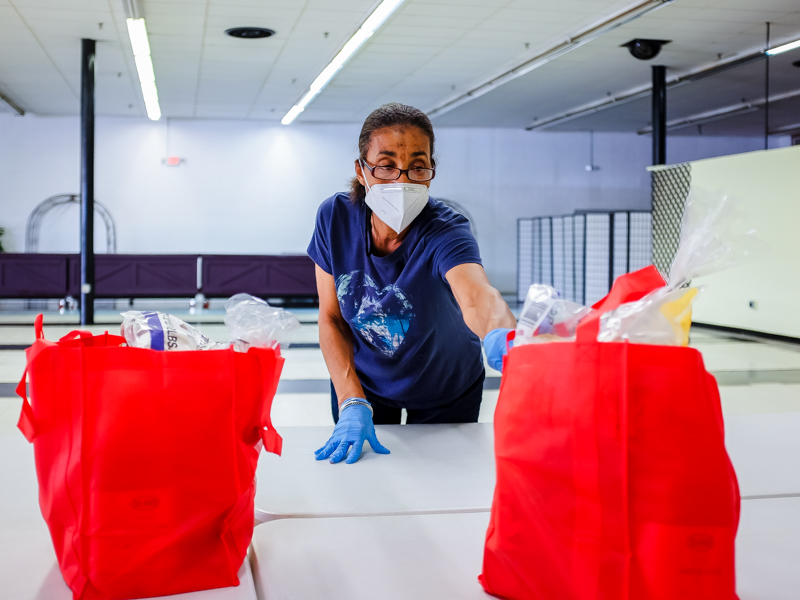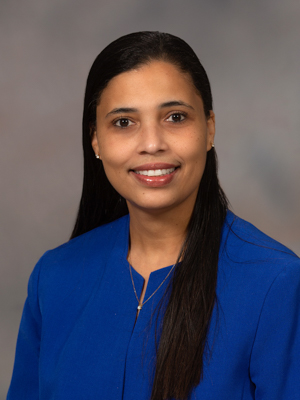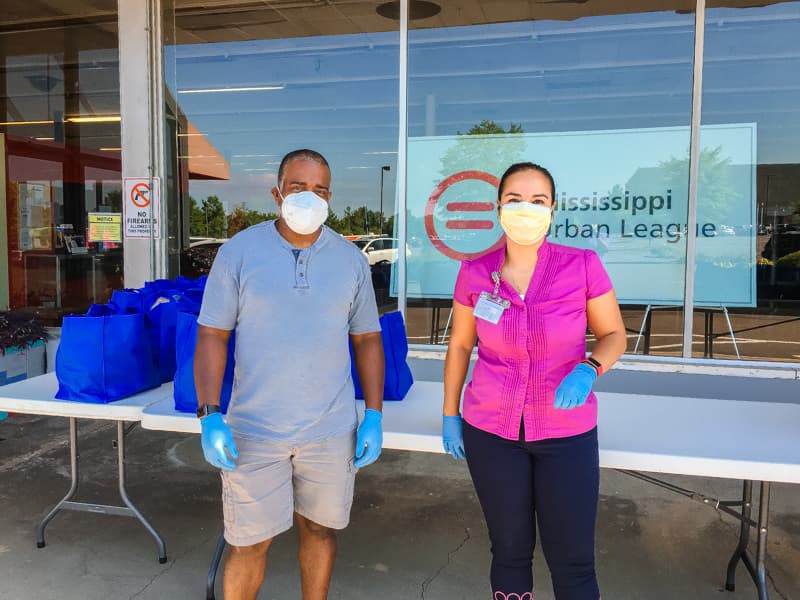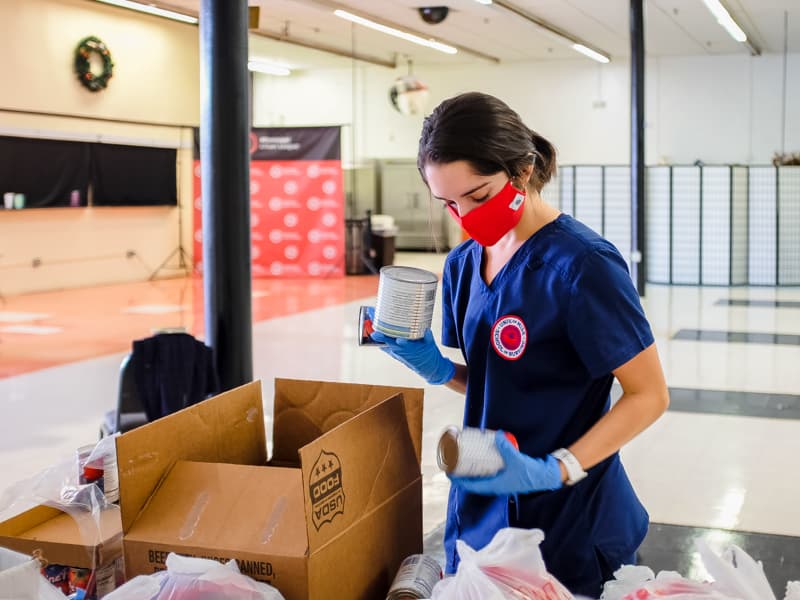EversCare fights increased food insecurity during pandemic

In the Jackson metro area, many residents aren’t just worried about day-to-day spread of COVID-19.
In a global pandemic, many worry about where their next meal will come from. Hunger is real, and for those most in need, helping-hand organizations may be the solution to putting dinner on the table.
That includes the University of Mississippi Medical Center’s EversCare food pantry, a component of the EversCare clinic housed at the Jackson Medical Mall. EversCare is part of the Medical Center’s Myrlie Evers-Williams Institute for the Elimination of Health Disparities.

“The pandemic has significantly impacted vulnerable populations and patients we serve,” said Victoria Gholar, director of strategic initiatives and resource management in the John D. Bower School of Population Health.
“Our focus at EversCare, from the beginning, has been to mitigate the negative impact of social determinants of health, especially for those who have chronic illnesses.”
Mississippi is ranked as the most food insecure state in the nation, meaning large numbers of people are unsure on a day-to-day basis whether they’ll have enough food to feed themselves or their families. “We’ve seen that since the pandemic began, food insecurity has considerably increased among this population of patients,” Gholar said.
Anyone from the community can receive food during a once-monthly distribution from the EversCare food pantry, located in a former grocery store building occupied by the Jackson Urban League adjacent to the Medical Mall. “When patients lose their jobs, they share their stories with our staff,” Gholar said. “There’s been an increase in homelessness, and that also presents more challenges for people to get food.
“In some instances, after losing their jobs, adult children are having to move back in with their parents. They might be on fixed incomes and don’t have enough money to cover food for everyone in a multigenerational household.”

To inquire about receiving food, send an email to EversCare@umc.edu.
When the pandemic became widespread in March, the EversCare food pantry pivoted, going to drive-up food distribution only. It’s not unusual for cars to wind for several blocks in the line when food bags are distributed on the third Wednesday of the month.
Going mobile was easy. In comparison, losing donations due to the strain of the pandemic has not been.
“We need money,” Gholar said. “There have been some disruptions in the food supply chain, and that has exacerbated our problems. We’ve had a decrease in donations because some organizations and individuals just don’t have the funds.”
Donations are managed through the Medical Center’s Office of Development. “Food insecurity has always been an issue for our state, but in this time unlike any our nation has faced in our lifetimes, our fellow Mississippians need more help than ever before,” said Jennifer Hospodor, director of community partnerships in the Office of Development.
Make a donation to the EversCare food pantry here.
“Support from our community is critical to keeping vital resources like the EversCare food pantry available to assist those in need. Any support you offer goes directly to help families in our community.”

Pre-pandemic, the food pantry served an average 236 families per month. “In October 2020, we served 563 families,” Gholar said. “In October 2020, 90 percent of our referrals were food insecure, but that doesn’t mean they were only referred for food insecurity.”
UMMC patients can receive food pantry assistance during normal business hours after being referred by any Medical Center provider.
Each person’s food bag is meticulously tailored to their chronic illnesses. “If a patient has high blood pressure, we provide low-sodium options,” Gholar said. “During our next distribution, we will have fresh eggs, chicken and beans along with other staples. We do our best to provide a source of high-quality protein each time a patient receives a bag.”
If a patient lives in a county outside Hinds, “we also connect them to food pantries in their area,” Gholar said. “We want to help them with longer-term solutions. Our social workers assist our patients with applying for federal and state food programs for low-income children and adults.”
If a client has food stamps, “we try to help them stretch their dollars and find bargains using the resources they have, such as couponing or using unit prices to see what the actual best prices are,” Gholar said. “Even at a dollar store, they can often find kidney beans or some healthy options.”
In good times and in today’s current challenge, Gholar said, EversCare’s focus is on the overall well-being of Mississippians and finding solutions to improve their quality of life.
“UMMC patients in every region of the state are eligible to receive these services,” Gholar said. “They are tailored to each individual and family and address social determinants of health.”


